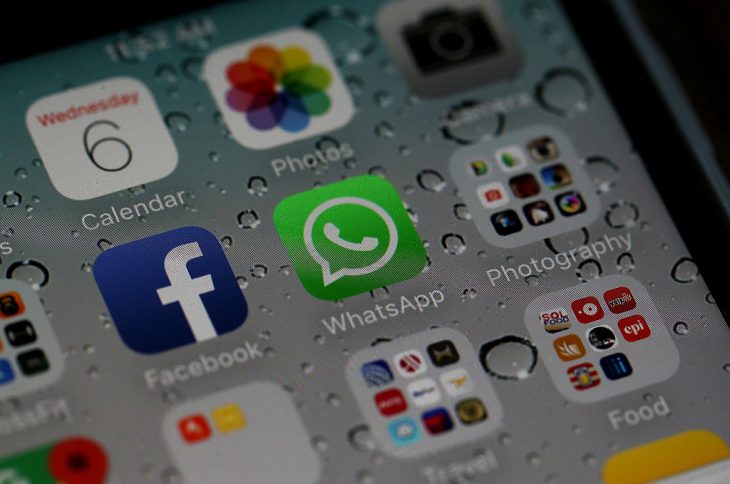Amber Rudd has vowed to ‘call time’ on tech companies who are giving terrorists ‘a place to hide’. The Home Secretary’s comments come after it emerged that Westminster attacker Khalid Masood was sending encrypted message on WhatsApp in the lead-up to the attack; Rudd is ‘right to read them the Riot Act’, says the Sun, which ups the criticism of WhatsApp in its editorial this morning. The paper says that if tech companies don’t start behaving then ‘there will be no alternative’ but for the Government to bring in new legislation to force them to co-operate with the security services. After all, when Rudd says that companies like WhatsApp are giving the terrorists a place to hide, the Sun says simply: she’s right – ‘Because that’s just what WhatsApp — owned by Facebook — lets them do’. WhatsApp aren’t the only ones at fault here, though; ‘Google allows terrorists to post training videos on YouTube’, the paper says, while Facebook too ‘behaves as if they are bigger and more important than any nation or elected politician.’ The paper says that even in the wake of last week’s attack, it isn’t optimistic that the tech companies will change their ways and give the security services a helping hand. ‘On past form, all they’ll do …is tell their PR merchants to carry on defending the indefensible’, the Sun argues. They’d be wrong to, says the paper – ‘it’s time they started to face the consequences of their behaviour’.
Social media companies mustn’t hide from their responsibilities, says the Daily Telegraph, which agrees with the Sun‘s analysis. But for all the criticism being thrown in WhatsApp’s direction, it’s important that we strike the right balance. It would be wrong to side with those who argue that the state should always be able to access communications and that ‘nothing should be encrypted’. Yet it is also ‘unconscionable’ for tech companies not to help ‘expose the motives of the perpetrator’ as appears to be happening in the wake of last week’s attack. This isn’t the first time this situation had arisen: a similar stand-off took place last year between the FBI and Apple, the paper points out, so it’s clear that this isn’t an isolated incident. Yes, WhatsApp’s boasts of its top-level encryption is clearly a big draw for users. But ‘it must accept that this can be misused’ and offer a ‘way of overriding it in exceptional circumstances’.
Meanwhile, with Article 50 set to be triggered this week, the papers are hailing the end of the Brexit ‘phoney war’. With just days to go, ‘the wails of the Remoaners have reached fever pitch, says the Daily Mail. The paper blasts ‘hypocritical’ Labour after the party vowed to ‘block any deal’ which doesn’t involve Britain continuing its EU membership ‘in all but name’. And there is criticism, too, for those, the Mail says are ‘foaming at the mouth’ against Brexit. ‘Shouldn’t Remoaners accept the inevitable’, the Mail suggests – as the paper calls on those who oppose Brexit to finally ‘unite with the majority’ rather than give ‘comfort to those who want to do Britain down’.
The ‘phoney war’ is about to end, says the Times, which argues that it’s time for the ‘bravado’ of both the Brexit-backers and their critics to ‘temper’ their mood with ‘realism’. ‘By Wednesday’, the paper says, ‘Britain’s departure from the European Union will indeed be under way’. And yet what Brexit will actually look like, we still don’t really know. Instead, up until now, the Times argues, most of what we have heard has had ’the air of a phoney war’. But now the real process of Brexit begins. The paper says that ‘the task is certainly formidable’. The Government, it says, will need to debate ‘trade, borders, fisheries, aviation, agriculture and the disposal of property’. And, at the end of it, ‘an exit bill must be agreed’. But while that’s the prize, there’s a real risk of failure on both sides, according to the paper. ‘Too much intransigence, and Theresa May could find herself without any deal at all’. While ‘too much conciliation’ will lead her to a familiar fate for Tory Prime Ministers: ‘at war with their own Eurosceptics’







Comments